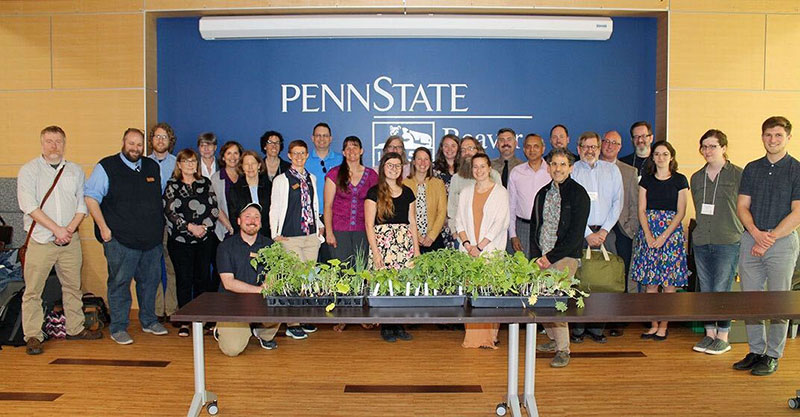About Sustainability at Penn State
As the highest ranked school in the Big Ten in the international Association for the Advancement of Sustainability in Higher Education (AASHE) STARS rankings, Penn State's commitment to sustainability has a long and proud history. The University uses the integrated framework of the 2030 Global Sustainable Development Goals to advance the causes of people, planet, shared prosperity, peace, and partnerships for current and future generations. Collaboration across the entire Penn State community ensures the institutionalization of sustainability across our colleges, campuses, communities, and Pennsylvania.
Coordination of sustainability at Penn State has evolved to fit the changing needs of the university over time. Originally, a separate academic Center for Sustainability and an operational Campus Sustainability Office addressed the University's needs. In 2013, the two units combined into the Sustainability Institute to allow for alignment of operational and educational efforts. The position of chief sustainability officer for the University was created in 2017.
In 2018, the Institute began working with units across Penn State to establish embedded sustainability councils, designed to address needs and goals specific to each unit. As of 2025, more than 25 colleges, campuses, divisions, and units had formally established councils. This followed efforts to embed sustainability into the strategic plans of all units in concert with the broader University's strategic plan.
In 2022, the unit was renamed Penn State Sustainability to reflect its broader role as a team of consultants and coaches who guide and bolster sustainability efforts across the University in numerous areas, including student and staff engagement, curriculum development, student-community projects, operations, research, and more.
In 2025, the teams within the sustainability unit were embedded into various units across the University, a move that brings them closer to their primary constituents and partners. At the same time, the teams continue to collaborate both with each other and with the many sustainability councils now operating across the university. This reorganization discontinued the chief sustainability officer role.
Whatever the organizational structure it has adopted over the years, Penn State has remained committed to championing sustainability as an educational opportunity to ensure student success, an operational necessity to create sound fiscal management, and a vital component of our land-grant mission in service of creating resilient communities across Pennsylvania.


